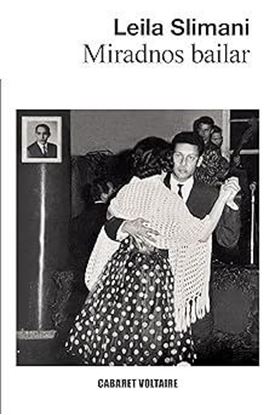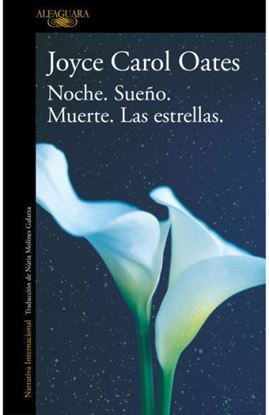

UN MUNDO DE ENSUEÑO
Colby Mills se sintió una vez destinado a una carrera musical, hasta que la tragedia echó por tierra sus aspiraciones. Ahora, al frente de una pequeña granja familiar en Carolina del Norte, acepta una actuación en un bar de St. Pete's Beach, Florida, buscando un descanso de sus obligaciones en casa.
Pero cuando conoce a Morgan Lee, su mundo se pone patas arriba, haciendo que se plantee si las responsabilidades que ha asumido tienen que dictar su vida para siempre.
Hija de acaudalados médicos de Chicago, Morgan se ha graduado en un prestigioso programa musical universitario con la ambición de trasladarse a Nashville y convertirse en una estrella. Romántica y musicalmente, ella y Colby se complementan de una manera que ninguno de los dos ha conocido hasta ahora.
Mientras Colby y Morgan se enamoran perdidamente, Beverly se encuentra en un viaje diferente. Huyendo de un marido maltratador con su hijo de seis años, intenta rehacer su vida en un pequeño pueblo. Sin dinero y con el peligro acechando, toma una decisión desesperada que reescribirá todo lo que sabe que es verdad.
En el transcurso de una semana inolvidable, tres personas muy diferentes pondrán a prueba sus ideas sobre el amor. A medida que el destino los va uniendo, se verán obligados a preguntarse si el sueño de una vida mejor podrá superar el peso del pasado.
995
746
LA CHICA DEL VERANO (ED.ESP.)
La vida está llena de etapas, algunas preciosas e inolvidables, otras más difíciles y complicadas, lo importante es saber cuándo hay que cerrar cada una de ellas.
La madurez no nos avisó. Apareció de repente con la enfermedad de Lucía, que superamos como siempre lo habíamos hecho, estando unidas. Aparentemente, Laux, Sara, Lucía y yo éramos las mismas cuatro amigas inseparables, pero las circunstancias de la vida no nos lo estaban poniendo fácil. La desilusión por un sueño que se escapa entre las manos, ocultarle la verdad a quien amas, tener que decidir entre tu pareja o ser madre hizo que nos diésemos cuenta de lo mucho que habíamos cambiado.
Seguíamos llenas de veranos y atardeceres, de risas y llantos, plenas de amistad incondicional y de luz, pero también de decisiones difíciles de tomar, diferentes, ineludibles a nuestra edad.
Entre ellas, la más importante para mí no dejaba de repetirse en mi cabeza: ¿Quería ser yo la Vecina Rubia? ¿Podría sostener el peso del anonimato siendo ella?
995
746
MIRADNOS BAILAR
1968. Gracias a su tesón, Amín ha conseguido convertir sus tierras áridas en una finca floreciente. Ahora pertenece a una nueva burguesía que prospera, organiza fiestas y se divierte: contempla el porvenir con optimismo. A su esposa Mathilde, en cambio, todo ese bienestar material no logra arrancarle la certeza de haber perdido los mejores años de su vida durante la guerra y, luego, cuidando de la casa y de Aicha y Selim, sus hijos. Pero al Marruecos independiente le cuesta consolidar su nueva identidad, a caballo entre el arcaísmo y la ilusoria tentación de la modernidad occidental, entre la obsesión por la imagen que uno da de sí mismo y las heridas de la vergüenza. En ese agitado periodo, que oscila entre la represión y el hedonismo, los jóvenes deberán pronunciarse, hallar su voz y su camino.
995
746
LOS LIBROS ARDEN MAL (BOL)
He aquí la historia dramática de la cultura.
La pesadilla que vive la ciudad no es una ficción. Sí, es verdad. Están quemando las bibliotecas de los ateneos, del centro de estudios Germinal, del señor Casares... El humo no levanta el vuelo. Es pegajoso. Huele a carne humana.
En esta novela, las vidas de los libros, las personas y el lenguaje se cruzan y entrelazan en un intenso relato de suspense que transcurre desde el siglo XIX hasta nuestros días, entre la atrocidad autoritaria y la indomable libertad.
Los libros arden mal es un universo poblado de voces
insólitas, de memorias que retumban o murmuran de forma
inolvidable, verdadera literatura donde todo está en vilo.
995
746
NOCHE. SUEÑO. MUERTE. LAS ESTRELLAS.
John Earle McLaren, «Whitey», un hombre afable de sesenta y siete años y que durante un tiempo fue el popular alcalde de Hammond, presencia un altercado entre la policía y un joven de tez oscura al que han detenido sin motivo aparente. Tras verse moralmente obligado a intervenir, los dos agentes se ensañan brutalmente con él. Las consecuencias de este enfrentamiento abren la puerta a una realidad bastante más oscura dentro de la familia McLaren, cuyos cinco hijos afrontarán el duelo revelando sus prejuicios, rencores e inseguridades: desde el desdén racista hacia la nueva pareja de la madre hasta las estrategias sibilinas para asegurarse la mayor parte de la herencia. Bajo una fachada de respetabilidad se esconden unos cimientos podridos que pueden hacer que la casa familiar acabe por derrumbarse.
995
746
EN EL REINO DEL TORO SAGRADO
Una historia de amor entre lo exótico y lo primitivo, lo bello y lo atroz
«Jordi Soler es un narrador fuera de serie». -Delphine Peras, Lire
«Una imaginación mágica y arrolladora». -Jorge Semprún
«Quizá regresó porque en cualquier lugar era una criatura hermosa y estrafalaria pero no tenía la misma singularidad, solo aquí era la reina, la diosa, la única, solo aquí era lo bello que condenaba al resto del mundo a la fealdad».
Artemisa, una hermosa mujer de ascendencia griega, vive en un pueblo perdido en la sierra de Veracruz, en un territorio entre la realidad y el mito en el que el primitivismo de la selva y la civilización del mundo occidental conviven en un equilibrio complejo. Allí todos la desean, la adoran como a una diosa, pero cualquier historia de amor con ella está abocada a la desgracia: la que relata el narrador, cuando ambos eran jóvenes, y la que tiene con un hombre mayor, violento y poderoso, que se enamora obsesivamente de ella. Obsesiva es también la relación que Artemisa establece con un ser extraño y atemorizante, un animal casi mitológico al que parece unirla una pasión desmedida que la precipita a un destino inhumano de traiciones y espanto inimaginable.
Lo exótico y lo primitivo, lo bello y lo atroz, la mitología griega y la del México prehispánico se entretejen en esta novela en la que Jordi Soler, con una prosa magnética que deja sin respiro al lector, narra la barbarie y las relaciones de amor y dependencia que desatan en estas páginas una verdadera tempestad.
995
746














